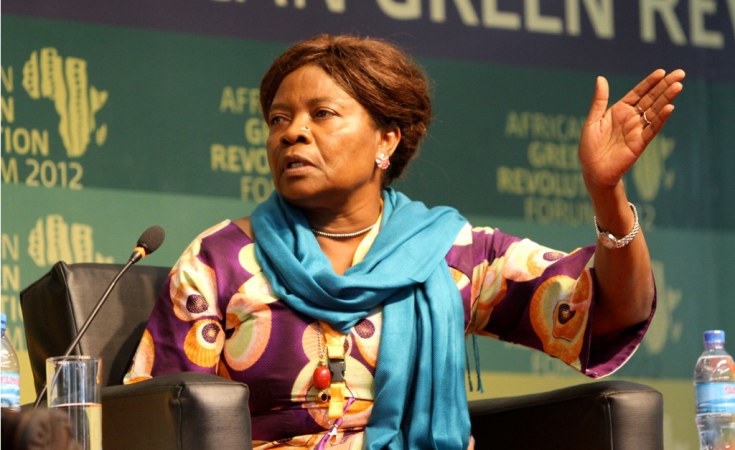Arusha — When Dr. Ruth Khasaya Oniang'o, a professor of food science and nutrition, shared advice from her mother at the September 2012 African Green Revolution Forum (AGRF), it really struck a chord. As a young African woman, I know the importance of a mother's advice - not just of my own, but of African mothers generally.
AGRF brought together African heads of state, ministers, farmers, private agribusiness firms, financial institutions, NGOs, civil society and scientists in Tanzania. For three days, hundreds of participants debated ways to scale up investment and innovation for sustainable agricultural growth and food security.
In a bid to develop concrete action plans, the forum aimed to put smallholder farmers at the center of the conversation. However, as you looked around Ngurdoto Mountain Lodge, located in the middle of a coffee plantation near the northern town of Arusha, the one thing in short supply were the smallholder farmers themselves.
This anomaly was spotlighted by Sheila Sisulu, deputy director of the United Nations' World Food Programme (WFP), who shared the stage with six men on the forum's last day. Looking around, she wondered out loud where the women smallholder farmers were.
I immediately echoed this sentiment into the twittersphere, to which I received this response from Su Kahumbu (@sukahumbu): "The women are in the fields feeding the nation."
How right Su is! At least half of the smallholder farmers in Africa are women. And not only that, according to a briefing paper aptly titled, 'Women in African Agriculture: Farmers, mothers, innovators and educators,' women are the "dominant presence in all aspects of smallholder production." Yet they farm while either owning very small pieces of land or no land at all, receiving only 7 percent of extension services and accessing only 1 percent of all agricultural credit.
AGRF and the Nairobi, Kenya-based Alliance for a Green Revolution in Africa (Agra), have made tremendous strides in putting smallholder farmers - and women smallholder farmers, in particular - on the agenda.
Agra chair Kofi Annan, in opening remarks at the forum, said that "across the board, there must be an unwavering focus on improving the productivity and profitability of smallholder farmers - most of whom are women."
Former WFP executive director Catherine Bertini said the case for investing in women farmers is simple: If we're serious about food security, we need to invest in the people working in the fields. And in Africa that is primarily women smallholder farmers.
Hearing these pronouncements, I could not help thinking that perhaps, more than anything, we need to invest in giving them a voice. Bertini went on to say that to achieve agricultural transformation in Africa, we must ask the question, "What are women farmers' needs?" Or in the words of a rather frustrated - or was it just emphatic? - participant, "It is time for African women farmers to speak for themselves. We cannot continue to speak for them."
"Never beg for food," was the advice Professor Oniang'o received from her mother. Africa is begging for food, Oniang'o said, "and as long as we continue to beg for food, we will not be counted on the global stage."
Another conversation largely missing from the forum's official sessions was one about nutrition. Research suggests that about 30 percent of Africa's children are malnourished, causing stunted physical and cognitive development, reduced learning and earning potential, vulnerability to infections and early death. Under-nutrition is growing among African children, even as food production rises. And there is growing evidence that unless nutrition is integrated with discussions about food security, that trend will continue.
Dr. Stephen Spratt of the Institute of Development Studies, lead author of a new report on nutrition aid, says targeted nutrition interventions can save millions of lives. Mothers - a great many of whom are the farmers that grow their families' food - are key to the success of those interventions.
So now, more than ever, when consensus is building around the need for transformative change in the field of African agriculture, women smallholder farmers must be part of the conversation.
It makes business sense to include them and to understand their perspective. Ensuring that women smallholder farmers have access to what they require - financial services, markets, land, healthcare, education, nutritional knowledge and technology - may be the only way to unlock Africa's productivity potential.


